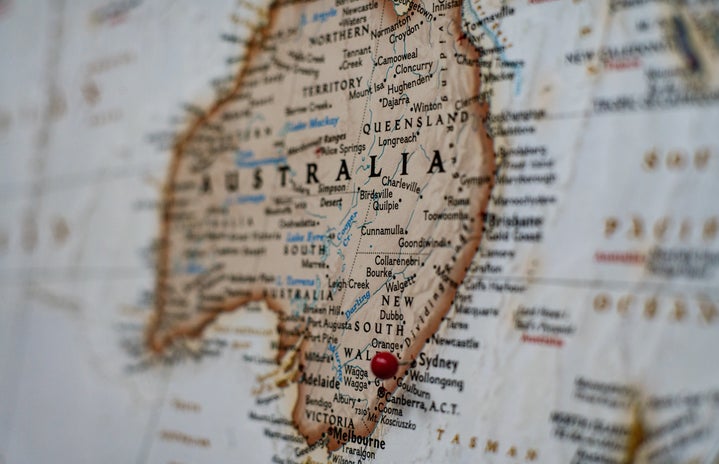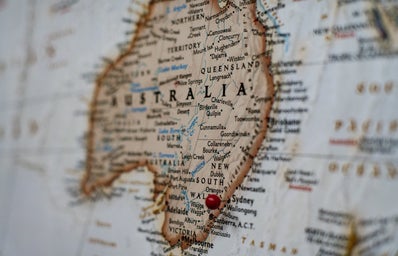Novak Djokovic planned on winning the 2022 Australian Open, which was a reasonable goal given the twenty Grand Slam wins he has racked up so far in his career. But the world’s best men’s tennis player never made it to the court.
Australia currently requires full COVID-19 vaccination for anyone entering the country– a mandate from which Djokovic was given an exemption by the Victoria state government after he tested positive for COVID in mid-December. Federal officials were at odds with this ruling upon Djokovic’s arrival at the Australian border. He would not be granted an exemption, and his visa had been canceled.
In the wake of this event, Djokovic was accused of not taking the virus seriously, as he conducted two interviews with journalists after testing positive in December.
“I felt obliged to go ahead and conduct the L’Equipe interview as I didn’t want to let the journalist down,” Djokovic said in a statement released on Instagram on Jan. 12, adding that he had socially distanced and worn a mask except when he was being photographed. “While I went home after the interview to isolate for the required period,” he continued, “on reflection, this was an error of judgement and I accept that I should have rescheduled this commitment.”
The Australian government was determined to prove that global fame does not produce an exemption from standards that the rest of the country has been following.
Djokovic decided to stay in the country and fight the border officials’ decision in court. Meanwhile, he was detained in Melbourne’s Park Hotel, where it soon became evident that Djokovic was not the only one being held.
More than thirty refugees and asylum seekers fleeing war-torn countries like Syria and Afghanistan are detained at Park Hotel. Djokovic’s detainment there brought to the public’s attention the cases of those who have been caught up in Australia’s border control system for years.
Australia has operated with immigration policies throughout history, dating as far back as 1901. That year, Australia instated the Immigration Restriction Act, otherwise known as the White Australia policy. This policy gave immigration officials the right to subject migrants to language tests in any European language of the official’s choosing. The policy ultimately encouraged and enabled refusal of any non-White immigrant to enter Australia.
In 2012 and 2013, as boats full of Syrian refugees began arriving almost every day to Australia, Immigration Minister Scott Morrison, who is now the Prime Minister, encouraged a “Stop the Boats” campaign. The Australian Navy was sent into the waters to deter refugees and asylum seekers from attempting to reach their shores.
When refugee boats were found, the people were forced back to the country from which they came, or they were detained on remote Pacific islands, including Nauru and Manus, without ever having their claims assessed by the Australian government.
This is Australia’s message of deterrence: without following their rigid immigration process, asylum claims will simply not be assessed. Those who do not follow the process will end up in mandatory detainment indefinitely.
In an episode of “The Daily” hosted by Annie Correal, Damien Cave said that many refugees on detention islands have never had their claims assessed and meanwhile are struggling to get necessary mental health medication. Several have attempted suicide.
ABC News similarly describes conditions at the Park Hotel, where several dozen refugees were transferred for medical treatment, as “disgusting” and “cruel.” Windows are sealed shut, maggots have been found in the food, and a foul odor permeates through the building.
Zahid Hussain transferred to the Park Hotel from Manus Island in 2019 to receive medical treatment, which he told ABC he has still not received. Hussain was told to fund his own dental procedures and transportation to treat receding and bleeding gums that prevented him from eating and sleeping. As he was detained and given no viable way to earn an income, activists raised the money for Hussain’s treatment. He still has not been granted the right to go receive it.
While activists were energized by the attention that Djokovic brought to the others being detained in the Park Hotel, disparities were still present in the treatment of the famous athlete and of the refugees. Djokovic could take his case to court, whereas the refugees, who have viable claims for asylum, have neither had these claims assessed nor been allowed to leave detention and pursue alternative options.
A panel of three judges upheld the Immigration Minister’s decision to cancel Djokovic’s visa, and he returned home to Serbia, according to Damien Cave. In a country where most citizens have been complying with safety standards, including quarantine and vaccination, throughout the pandemic, Djokovic was considered a risk to public health with the potential to influence adherence to protocols.
Time will tell if Djokovic’s conflict with Australia’s border officials will cause the government to reassess the handling of the remaining detainees in the Park Hotel and beyond.


